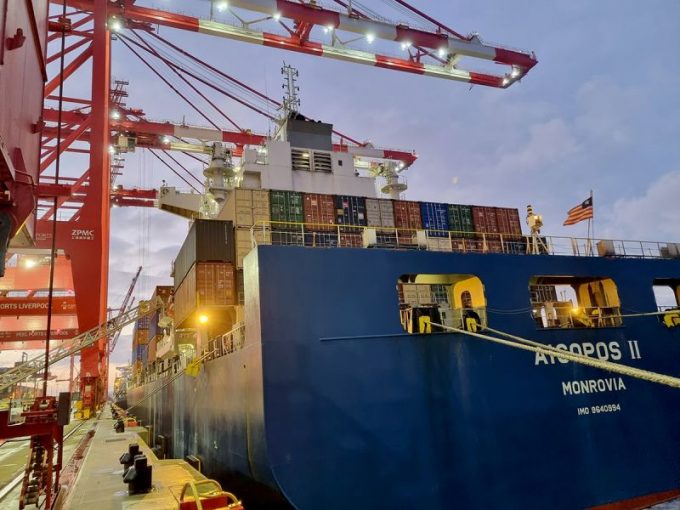Revamped services offer faster transit times for Ireland - North America shippers
Specialist con-ro operator Atlantic Container Line (ACL) is redesigning its transatlantic network to offer more ...

As the major container lines struggle to maintain direct calls at the UK’s southern container hubs, another full load of imports from China has arrived at the port of Liverpool.
The 2,034 teu Aisopos 11 arrived at Liverpool at Saturday morning, completing its third voyage from China for Allseas Global Logistics under its China Xpress NVOCC banner.
The vessel was due to be worked at the T2 Terminal after its 27-day passage from Ningbo and Yantian, but at the time The Loadstar ...
Volcanic disruption at Anchorage could hit transpacific airfreight operations
Shippers snap up airfreight capacity to US ahead of tariff deadline
New price hikes may slow ocean spot rate slide – but for how long?
Tighter EU import requirements proving 'a challenge' for forwarders
Forwarders stay cool as US 'liberation day' tariffs threaten 'global trade war'
Supply chain delays expected after earthquake hits Myanmar
Looming Trump tariffs will create 'a bureaucratic monster' for Customs

Comment on this article